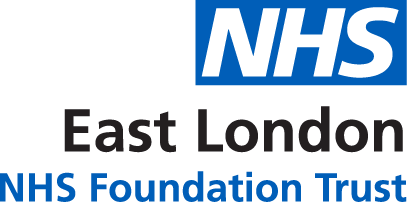Time to Get Serious About our Impact on the Planet

Dr Juliette Brown is a consultant in older adult psychiatry in Newham. She is a member of Medact and Psych Declares, a group of mental health professionals involved in advocating for action on the climate emergency and has taken part in non-violent direct action, including with Doctors for XR. She is Clinical lead for Environment, Sustainability and Climate Action for London. (Dr Paul Lomax her equivalent for Luton and Bedfordshire, was featured in the last issue of Trusttalk.) In this interview, Juliette explains why climate change needs personal and public action.
When did you first become interested in climate change and the impact of human behaviour on the planet?
I was studying English Literature in the late 80’s when I heard about climate change. My assumption was that governments would act to prevent harm once they realised the scale of the problem, and especially once they had read reports like those from the IPCC https://www.ipcc.ch/sr15/chapter/spm/ and the Lancet https://www.thelancet.com/countdown-health-climate.
Like many people, I made changes personally to have less of an impact, but eventually the realisation dawned that the only really effective actions now will be those we take collectively.
Our health is fundamentally dependent on the health of the environment – in very basic ways, like our ability to grow the food we need to survive, and have clean air and water. So I am puzzled that the UK government has declared a climate emergency, but continues to subsidise fossil fuels and license new oil fields.
What worries you most if we don't start addressing issues of climate change?
We have finally reached the point where it’s almost too late to prevent the very worst outcomes – crop failures across multiple regions, and the social unrest, war and mass displacement that follows, as well as thousands of deaths from air pollution locally. Modelling of climate change dating to the 1970s and 1980s has proved uncannily accurate but sadly none of the numerous pledges and treaties in the last 30 years have had any impact on our greenhouse gas emissions.
For me, it’s about the hopes and dreams I have for the people I care about most. I feel terribly sad and sorry that we are passing this on as our legacy. I don’t want today’s young people to miss out on the kind of stability and peace I grew up in.
The climate and ecological emergency raises all kinds of emotions and responses – including anxiety and fear, denial, anger, guilt, grief. Sometimes people don’t want to hear about it because they just don’t want to have to give up some of the privileges we have in the west.
Do you think small actions can make a difference if large actions in other parts of the world are causing damage?
Every action makes a difference, especially if people talk to others about what they are doing and why. We know people want action and we know that hearing about other people taking action is an important motivator. Activism can relieve anxiety around the future, and any action that is directly targeted at tackling the problem, and can be shared with others in order to inspire change is helpful. Like changing to a bank that doesn’t fund fossil fuels (use the https://switchit.green/ website), switching to use less polluting and healthier forms of transport, fly less, and eat more plant-based foods. Joining campaigns can be most effective E.g. Groups like Mums for Lungs who are speaking at our next Climate Network event. Doctors and scientists are regularly risking arrest to raise the alarm. I want people to demand more action from our governments.
In general I don’t think it’s helpful to focus on other countries’ emissions. For example, in the UK we are not held formally responsible for the emissions generated by goods we buy that are manufactured overseas, but we are still the ones driving the demand.
What can people to do as part of this work?
We would love people to step up and join the ELFT Climate Network. It’s easy to do – just register here: https://forms.office.com/r/kudw8eMPtb. We offer monthly welcome sessions where people can learn more about how we are taking climate action in the Trust.
We have six workstreams working on areas including travel and transport, estates and facilities (including green spaces, food and nutrition), procurement, workforce and systems leadership, sustainable models of care (including digital and adaptation) and medicines. We’re working on a team based scorecard so each team can assess their impacts at work. Learn more through the Climate Network, step up as a leader, and make sure sustainability is on the agenda in all teams and localities. Email me and I’d be happy to have a chat about your interests.
What types of things could reduce ELFT's carbon footprint?
The biggest areas of energy usage are staff and patient travel, energy used to heat and light our buildings and the embedded carbon in the production of medication and all the things we buy, but we also have to think more broadly about how we deliver healthcare and prevent ill-health. Much of our vision as a trust is about preventing illness, reducing inequalities, empowering patients, offering services that are easier to access and more efficient – these are sustainability initiatives too. The climate and ecological crisis is an opportunity to work on these areas and we need everyone to get involved!
